The Toast of New York

Brief Synopsis
Cast & Crew
Rowland V. Lee
Cary Grant
Edward Arnold
Frances Farmer
Jack Oakie
Donald Meek
Film Details
Technical Specs

Synopsis
During the Civil War, New Englander Jim Fisk, the "Barnum of Peddlers," and his confidence game partners, Nick Boyd and Luke, make a fortune smuggling Southern cotton but discover later that their profits, which Luke had converted into Confederate bonds, are worthless. Down but not beaten, Fisk devises a scheme whereby the bonds can be used to finagle the pious but greedy Daniel Drew into selling his shipping business and turn a profit for themselves. To celebrate their Wall Street triumph, Fisk, Boyd and Luke attend a French musical revue, where Fisk meets Josie Mansfield, the beautiful maid to the show's star. Mesmerized by the aspiring actress, Fisk dedicates himself to bankrolling a show for her, which annoys the equally infatuated, jealous Boyd. Drew, meanwhile, having been ridiculed by his longtime business rival, Cornelius Vanderbilt, approaches Fisk with a plan to prevent Vanderbilt from buying out his Erie railroad company, which Fisk cleverly expands upon to his own financial advantage. Vanderbilt's attempts at blocking Fisk's railroad stock manipulations fail, but infuriated investors chase Fisk and company all the way to New Jersey, where he establishes a military style stronghold. At the opening of her show, the New York audience, many of whom have lost money due to Fisk's schemes, turns on Josie, who, out of gratitude, has accepted Fisk's marriage proposal. Disenchanted and heartbroken over Josie, Boyd finally deserts his partner, whose lust for power and money culminates in a singlehanded attempt at cornering the gold market and leads to Black Friday. By releasing the government's gold supply to the public market, President Ulysses S. Grant finally stops Fisk's outrageous Wall Street manipulations. Shot by an angry, riotous investor, the defeated Fisk gives Josie and Boyd his blessing and dies.

Cast

Cary Grant

Edward Arnold

Frances Farmer

Jack Oakie
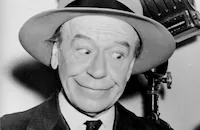
Donald Meek
Thelma Leeds
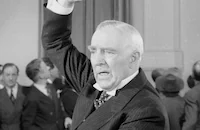
Clarence Kolb

Billy Gilbert
Stanley Fields

George Irving

Russell Hicks
Dudley Clements
Lionel Belmore
Robert Mcclung
Robert Dudley
Dewey Robinson
Frank M. Thomas
Oscar Apfel

Gavin Gordon
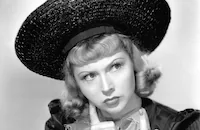
Joyce Compton
Virginia Carroll
Marie Maraks
Ginger Connolly
Joseph De Stefani
George Offerman Jr.

Lloyd Ingraham
Ted Thompson
Jack Luden
Reed Howes
Wally Dean
Jay Eaton
Fred Lee
Craufurd Kent
Otto Hoffman
Winter Hall
Frank Darien
Allan Cavan
Clarence Harvey
Tom Ricketts
Edward Le Saint
Earl Dwire
George Cleveland
Ben Hall
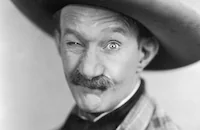
James Finlayson
Frank Arthur Swales
Foy Van Dolson
Lon Poff
Frank Hammond
Nelson Mcdowell

Clem Bevans
Maxine Elliott Hicks
Daisy Bufford
Stanley Blystone
Jack Kenny
Chris Frank
Frank Rasmussen
Mary Gordon
Reginald Barlow
Jack Egan
Charles Doherty
Mike Jeffries
Max Wagner

Jack Carson
Eddie Hart
Bentley Hewlett
George Lollier
Frank Marlowe
Otto Fries
Monte Vandergrift
Lynton Brent
Homer Dickinson
Francis Palmer Tilton
Pete Gerrard
Ed Heim
Sidney Bracy
Harvey Clark
Frank Hall Crane
Nick Thompson
Frank Mills
Russ Powell
Ethan Laidlaw
Edward Peil Sr.
Malcolm Graham
Gladden James
James Barnes
William Jeffrey
Walter Murray
Robert Brister
Tom O'grady
Jack Mulhall
Hal Craig
William Lemuels
Billy Arnold
James Carlyle
Tom Chatterton
John Marshall
Emile Durelle
Larry Steers
J. C. "jack" Fowler
Cameron Smith
Ernest Shield
Jerry Storm
William Worthington
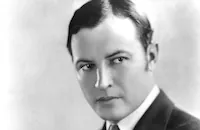
Robert Frazer

Bryant Washburn
John Maurice Sullivan
James Quinn
Tom Coleman
Dick Kipling
Al Greer
Tyrone Brereton
Frank Hemphill
Margaret Morris
Isabel La Mal
Don Brody
William Gould
Tom Brower
Crew
Samuel Beetley
Samuel J. Briskin
John L. Cass
Carroll Clark
L. Wolfe Gilbert
George Hively
Thomas Lennon
Peverell Marley
Dudley Nichols
Dudley Nichols
Van Nest Polglase
Bill Rice
Joel Sayre
Nathaniel Shilkret
Nathaniel Shilkret
Darrell Silvera
Edward Small
Dewey Starkey
Edward Stevenson
Douglas Travers
John Twist
Vernon L. Walker
Western Costume Company
P. J. Wolfson
Allie Wrubel

Videos
Movie Clip




Film Details
Technical Specs

Articles
The Toast of New York
Edward Arnold, best known for his villainous roles in Frank Capra's Mr. Smith Goes to Washington (1939) and Meet John Doe (1941), had just starred in a big hit, Come and Get It (1936), playing a Nineteenth Century lumber baron. To cash in on his popular success, RKO starred him in this movie as another financial wizard in period costume.
What added spice to the production was the supporting cast. Playing the secondary male lead was Cary Grant, then just on the cusp of stardom, which would soon arrive in the movies Topper (1937) and The Awful Truth (1937). Cast as Arnold's mistress Josie Mansfield was Frances Farmer, also a rising star, but one who courted controversy during the making of the film and would later experience personal tragedies as her star plummeted and she was wrongfully incarcerated in a mental institution.
Farmer later wrote in her autobiography Will There Really be a Morning? (1972) that she battled to bring reality to her role: "Josie Mansfield had been a designing harlot, it's true, but she was also a woman of pathos in her desire for respectability...Instead of a cheap vixen, they wanted an ingénue fresh from Sunnybrook. So I rebelled. I argued with the producer. I fought with the director, and got into verbal knockdown drag-out battles with the writers...But they won, and I ended up beautifully costumed, and Josie Mansfield was safely tucked into a chastity belt."
Farmer was quite correct that the finished film of The Toast of New York bares only a slight resemblance to the facts of Jim Fisk's life. What follows is a recounting of the historical events that were the basis of the film.
James Fisk first made his fortune during the Civil War, buying cotton on the cheap from destitute farmers in the South whose lands had recently been occupied by Union troops, then selling it at a highly inflated price to a cotton-starved Europe. After the war, Fisk and Jay Gould became partners with financier Daniel Drew and seized control of the Erie Railroad. Cornelius Vanderbilt, trying to build a transportation monopoly, tried to force them out by buying a controlling share of the stock, unaware that Fisk and Gould were simply printing more stock certificates for the railroad and dumping them on the market. It was just the beginning of one legally dubious financial scheme after another leading to Drew, Fisk and Gould attempting to corner the gold market in September 1869. The attempt failed and the fallout caused the stock market to crash in an event called Black Friday. Hundreds of investors were ruined and the economic disaster pulled down European stocks as well as American.
Fisk was by now considered a public enemy but his wealth bought him political protection that enabled him to treat the law and Congress with contempt. Meanwhile he lived the high life, taking a succession of mistresses while indulging his passion for grand opera. Josie Mansfield was the favorite of his mistresses but became the one who brought about his downfall. An argument over her and some business transactions led Edward Stokes to shoot Fisk in the Grand Central Hotel in New York January 6, 1972. Fisk died the next day.
Director: Rowland V. Lee
Producer: Edward Small
Screenplay: Dudley Nichols, Joel Sayre, John Twist, based on Robber Barons by Matthew Josephson and The Book of Daniel Drew by Bouck White
Cinematography: Peverell Marley
Art Direction: Van Nest Polglase
Musical Director: Nathaniel Shilkret
Editing: Samuel Beetley, George Hively
Cast: Edward Arnold (Jim Fisk), Cary Grant (Nick Boyd), Frances Farmer (Josie Mansfield), Jack Oakie (Luke), Donald Meek (Daniel Drew), Thelma Leeds (Fleurique).
BW-109 min.
by Brian Cady

The Toast of New York
Quotes
Trivia
Notes
The working title of this film was The Robber Barons. According to modern biographical sources, James Fisk founded the Fisk & Belden brokerage house in 1866 with the help of Daniel Drew, a shrewd New York stockbroker who bullied and manipulated his way onto the board of directors of the Erie Railroad Company. As depicted in the film, Fisk and Drew then wrecked Erie through their stock manipulations. In 1868, Fisk, Drew and financier Jay Gould were responsible for driving up the price of gold, causing a nationwide economic depression. In September 1869, Fisk tried to corner the gold market but was outmaneuvered by President Grant, who released the government's gold supply in time to prevent a complete collapse. Edward S. Stokes shot and killed Fisk in January 1872 in a fight over a woman. Actress Josie Mansfield was one of Fisk's many romantic interests.
Alexander Hall began as director of the picture, but was replaced by Rowland Lee in early January 1937 after he fell ill with pleurisy. According to a Hollywood Reporter news item, two-thirds of the picture was shot by the time Hall left. However, the length of principal photography suggests that Lee reshot or expanded much of Hall's material. It is not known how much of Hall's footage was retained for the final film. According to an early March 1937 Hollywood Reporter news item, Dudley Nichols rewrote "much of the script" on the set. A December 1936 Hollywood Reporter news item adds Henry Kolker to the cast, but his participation in the final film has not been confirmed. For the production, RKO borrowed Edward Arnold from B. P. Schulberg Productions, Cary Grant and Frances Farmer from Paramount, and Mary Philips from M-G-M. According to an RKO publicity handbook, more than $40,000 worth of antiques were used in the film. The Variety review lists the length of the film as seen at an July 8, 1937 preview as 93 minutes, but this time is probably an error. According to modern sources, the film, which cost $1,072,000 to make, lost $530,000, and was RKO's biggest box office failure in 1937.















